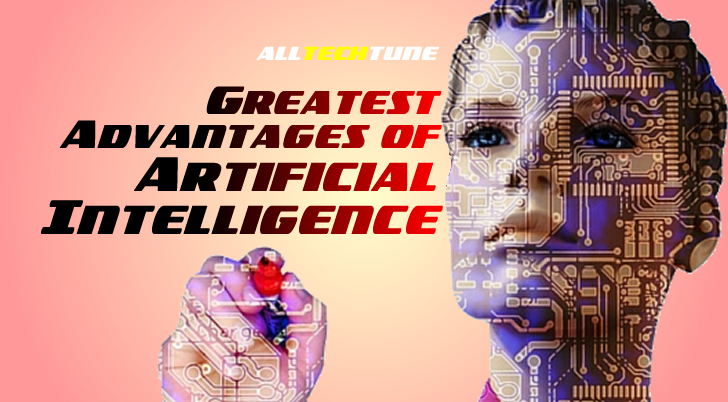Artificial intelligence (AI) is the intelligence of machines. It is about designing machines that can think. Researchers also aim at introducing an emotional aspect into them. How will it affect our lives? Read this article for an overview of the Advantages of Artificial Intelligence..
What is Artificial Intelligence actually?
In the last few years, Artificial intelligence evolved from a
science-fiction dream to an internal part of our lifestyle. we use AI
systems to interact with our phones through Siri and Alexa.
From
SIRI to self-driving cars, artificial intelligence (AI) is progressing
rapidly. While science fiction often portrays AI as robots with
human-like characteristics, AI can encompass anything from Google’s
search algorithms to IBM’s Watson to autonomous weapons.
Artificial intelligence today is properly known as narrow AI (or weak AI),
in that it is designed to perform a narrow task (e.g. only facial
recognition or only internet searches or only driving a car). However,
the long-term goal of many researchers is to create general AI (AGI or strong AI).
While narrow AI may outperform humans at whatever its specific task is,
like playing chess or solving equations, AGI would outperform humans
at nearly every cognitive task.
The Top Myths About Advanced Artificial Intelligence
A captivating conversation is taking place about the future of
artificial intelligence and what it will/should mean for humanity. There
are fascinating controversies where the world’s leading experts
disagree, such as: AI’s future impact on the job market; if/when
human-level AI will be developed; whether this will lead to an
intelligence explosion; and whether this is something we should
welcome or fear.
But there are also many examples of of boring
pseudo-controversies caused by people misunderstanding and talking past
each other. To help ourselves focus on the interesting controversies and
open questions — and not on the misunderstandings — let’s clear up
some of the most common myths.
10 Most Greatest Advantages of Artificial Intelligence
1. With artificial intelligence, the chances of error are almost nil and greater precision and accuracy is achieved.
2. Artificial intelligence finds applications in space exploration.
Intelligent robots can be used to explore space. They are machines and
hence have the ability to endure the hostile environment of the
interplanetary space. They can be made to adapt in such a way that
planetary atmospheres do not affect their physical state and
functioning.
3. Artificial intelligence would have a low error rate compared to humans, if coded properly. They would have incredible precision, accuracy, and speed.
4. They won't be affected by hostile
environments, thus able to complete dangerous tasks, explore in space,
and endure problems that would injure or kill us.
5. Intelligent robots can be programmed to reach the Earth's nadirs. They
can be used to dig for fuels. They can be used for mining purposes. The
intelligence of machines can be harnessed for exploring the depths of
oceans. These machines can be of use in overcoming the limitations that
humans have.
6. Intelligent machines can replace human beings in many areas of work.
Robots can do certain laborious tasks. Painstaking activities, which
have long been carried out by humans can be taken over by the robots.
Owing to the intelligence programmed in them, the machines can shoulder
greater responsibilities and can be programmed to manage themselves.
7. Replace humans in repetitive, tedious tasks and in many laborious places of work. Predict what a user will type, ask, search,
and do. They can easily act as assitants and cna recommend or direct
various actions. An example of this can be found in the smartphone.
8. Artificial intelligence can be utilized in carrying out repetitive and time-consuming tasks efficiently. Intelligent machines can be employed to do certain dangerous tasks.
They can adjust their parameters such as their speed and time, and be
made to act quickly, unaffected by factors that affect humans.
9. They can think logically without emotions, making rational decisions with less or no mistakes.
10. Can assess people. This can be for medical purposes, such as
health risks and emotional state. Can simulate medical procedures and
give info on side effects.
They don't need to sleep, rest, take breaks, or get entertained, as they don't get bored or tired.







No comments